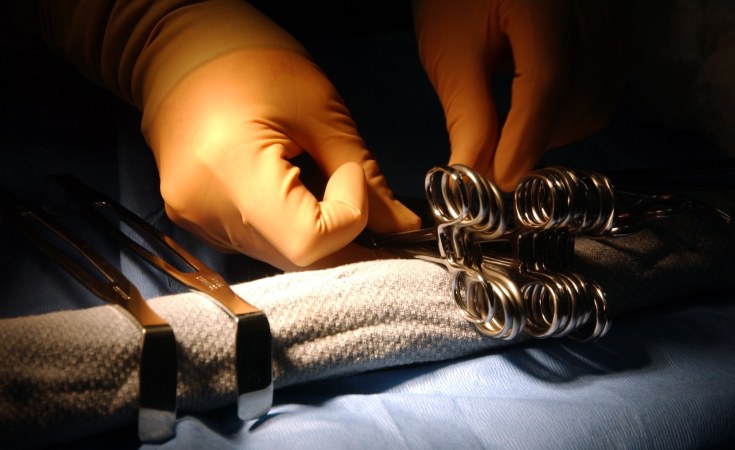Kigali, Rwanda — "Being the first plastic and reconstructive surgeon in my country is a great honour," Dr. Baramburiye said. "But it's also a huge load on my shoulders, a lot of pressure."
Born and raised in Burundi, Dr. Clovis Paulin Baramburiye's path to plastic surgery was anything but straightforward. After completing his medical degree at Tianjin Medical University in China, he returned home to work as a teaching assistant lecturer in human anatomy at the University of Burundi. It was during this time that he began his surgical training through the College of Surgeons of East Central and Southern Africa (COSECSA), a regional body that provides affordable surgical education across Africa.
"I always wanted to do plastic surgery, but there wasn't any programme available in Burundi," he said. "Training abroad was too expensive, so I started training in general surgery instead."
Then came a breakthrough. He was offered a scholarship to pursue his dream of specializing in plastic surgery, but it meant abandoning years of general surgery training, for Dr. Baramburiye, the decision was clear.
"Since this was my dream forever, I didn't hesitate," he said. "I dropped general surgery and went to Rwanda for three years of dedicated plastic surgery training."
After three intensive years of training, he completed his exams in Zimbabwe and officially became a certified plastic surgeon in December 2023. Today, Dr. Baramburiye wears multiple hats: he is a lecturer at the University of Burundi, chairs the Department of Human Anatomy, and works as a consultant plastic and reconstructive surgeon at the University Hospital.
He said that being the first plastic and reconstructive surgeon in his country is a great honor, but it's also a huge load on his shoulders and a lot of pressure. "I'm still in the excitement phase, but I'm already facing challenges. Sometimes I don't get appropriate instruments or theatre time, but I'm excited to be there, show people things can be done, and advocate for what's necessary to do it the right way," he said.
Transforming lives through surgery
Plastic and reconstructive surgery is about far more than aesthetics - it's about restoring function, dignity, and hope.
Dr. Baramburiye treats a wide range of cases, from acute burns and post-burn contractures to cleft lips and palates, soft tissue infections, and even cosmetic procedures like body contouring and breast reduction.
However, his work is not without challenges. The lack of resources and inadequate equipment sometimes limits his ability to provide the best care.
"For most reconstructive surgeries, basic instruments can work. But for cases like cleft palate, you need special retractors and calipers. Sometimes I'm challenged by these instruments, but I'm advocating to get what I need so I can do proper work."
Despite these hurdles, Dr. Baramburiye finds immense satisfaction in his work.
"The most rewarding aspect is doing something people thought wasn't possible," he said. "Getting feedback like, 'Wow, we didn't know this could be done,' or 'We had lost hope for this patient' - it's just amazing."
Even small procedures, which he considers routine, can leave an immense impact.
"It was something I found really simple, but because no one was doing it before, they were like, 'Wow, this is amazing.' That kind of feedback gives you motivation to keep going despite the challenges."
The role of technology and advocacy
Dr. Baramburiye believes that technology, including artificial intelligence (AI) and telemedicine, could play a crucial role in improving surgical care in Burundi.
"AI will play a big role," he said. "I was impressed by a software used in Rwanda to assess the severity of cleft cases. I think AI is going to make our lives way easier, but we need to handle it properly."
"AI is going to make our lives way easier, but we need to handle it properly."
However, one of the biggest barriers to safe and timely surgical care remains the shortage of doctors in rural areas. He believes that addressing the shortage of doctors in rural areas is critical.
"We need to address why doctors aren't close to the population," he said. "We need to motivate doctors to settle in rural areas with their families, provide them with proper equipment, and ensure they can live decent lives. You can't help others if you're not helping yourself first."
He compared it to the oxygen mask instructions on an airplane. "They always tell you to put on your own mask before helping someone else. It's the same for doctors - we need the right conditions to do our jobs well."
COSECSA's impact
Dr. Baramburiye credits COSECSA with transforming surgical training in Africa.
"Surgery in Africa has come a long way," he said. "In the past, a surgeon had to do everything - orthopedics, neurosurgery, general surgery. But now, we can specialize, and that's thanks to programs like COSECSA."
He said COSECSA is accessible and affordable, allowing doctors to train in their home countries when possible. "You just pay an application and examination fee, no tuition. It brings surgical training closer to people and helps address the shortage of specialists."
Now, he hopes to inspire other young surgeons to follow their passions.
"Every surgeon is a leader and has a big role in advocating for our work, which is very demanding and requires lots of sacrifices. I trained for seven years to become a plastic surgeon. Not everyone gets that chance, and even when you do, you face challenges that limit your ability to deliver your best.
The first advocacy is to make stakeholders understand that a happy surgeon will have better outcomes. That means having proper equipment, theatres, and the capacity to live a decent life. That's the key for the future."


